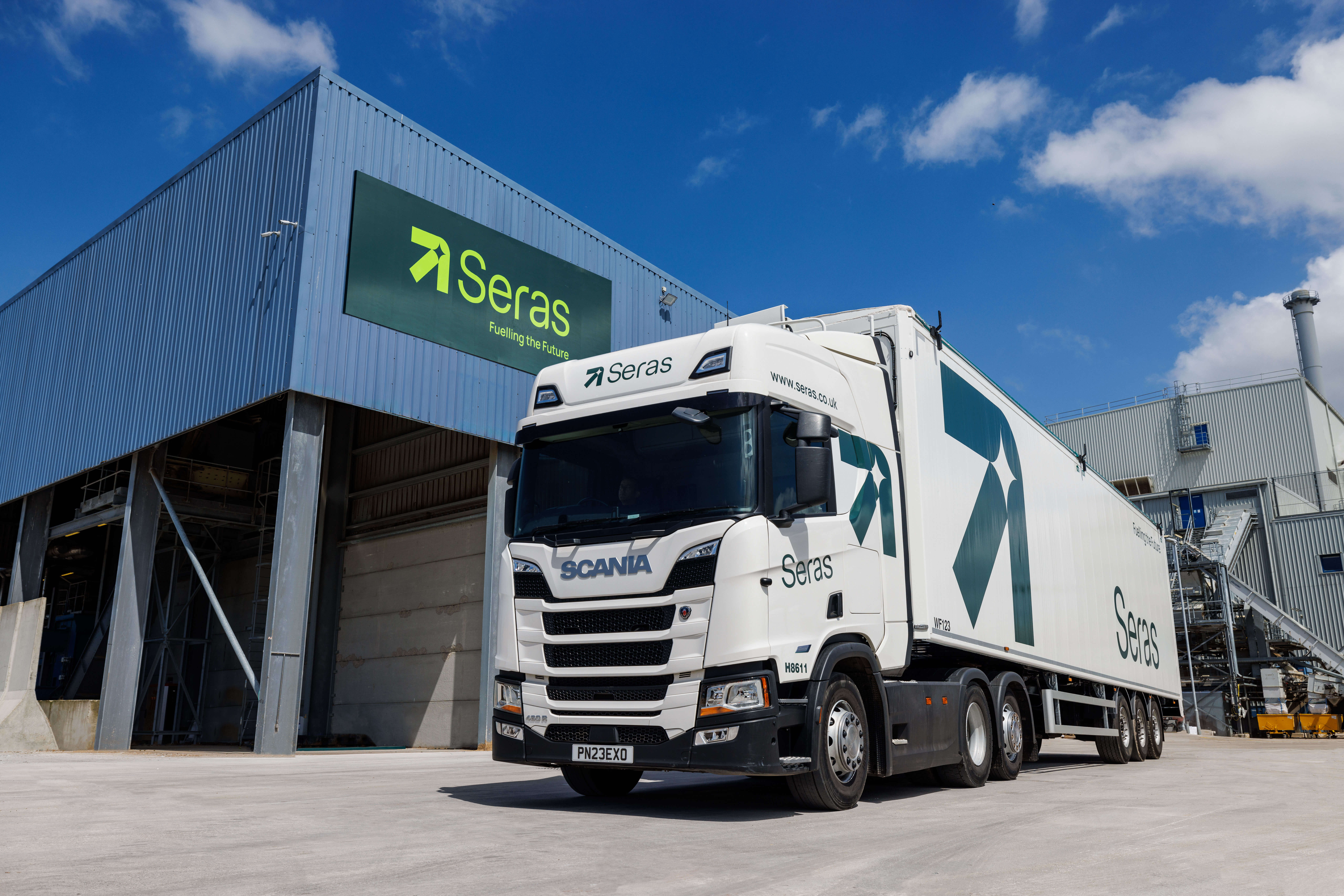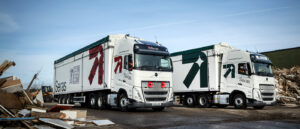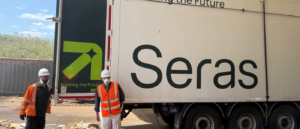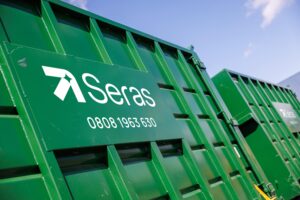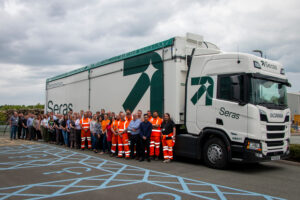Esken Renewables has rebranded to Seras, reflecting a new era in the fuel specialists’ business. Backed by its new owners, Pioneer Point Partners, growth and sustainability are central to the Seras story. We met with Richard Jenkins, CEO of Seras, to find out more about his vision for the business.
Why have you changed the business’ name to Seras and what does this new brand represent?
We wanted to move away from the past and create a name and a brand which represented the new era. It was important to create an identity which reflected the strengths of our business today along with our growth aspirations for tomorrow. The waste wood market has matured and this rebrand positions our business perfectly in the market in which we now operate.
At our heart we are a business which contributes to renewable energy generation through the fuel that we provide. Our aim is to grow and diversify into wider waste streams and sustainable fuel supply. I’m very focussed on what chapters we can write for the future.
What is the significance of your new ownership?
Our new owners – Pioneer Point Partners – provide fantastic opportunities for growth and investment which will enable us to supply greater volume for our long-standing customers. Pioneer has invested over £13 million since they took over in less than a year. This was much needed investment to upgrade our existing asset base. The new ownership has also given the business stable ownership, which we’ve not had for a long time. Sustainability is hugely important to Pioneer, a value we share at Seras, and they are supporting us as we continue to shape our ESG strategy.
How do you intend to grow the business over the next five years?
Firstly, we are working to maximise and enhance our core business. We have good foundations to increase our biomass fuel supply and this is a critical part of our strategy. We are increasing our fuel streams by diversifying into other waste streams. This will help strengthen our suppliers and our customer base. In the long run it will mean that we can enable the delivery of more renewable energy, helping to keep the lights on.
The other area that we are considering is how do we drive value out of biomass – whether that is marine or sustainable aviation fuel – and how could this support difficult to decarbonise areas. We are only at the start of that journey but controlling volume is a great way our business can play a role in these emerging technologies.
What is the role of waste wood in reducing the UK’s carbon emissions?
I think the work the sector has done over the last few years has articulated the important role waste wood is playing in the UK today. The Wood Recycling Association’s latest data showed that waste wood powered biomass saved almost three-quarters of a million tonnes of carbon emissions in 2023 when compared to the likely displaced energy generation. Waste wood is a waste product with limited options. There are huge benefits to diversion from landfill and the base load energy produced. Our sector does play an important role in the energy transition so we need to be part of the conversation. At Seras, we will support the sector to influence policy whilst putting ourselves in the best position to take advantage of the opportunities that arise in the future.
Do you think biomass fuel will continue to play a role in the UK’s clean energy transition?
Biomass is a very reliable clean energy source which doesn’t need the wind to blow or the sun to shine. The future of biomass will be driven by the market and the policy drivers around the decarbonisation of the UK. There’s a whole myriad of things which could come to the market around carbon capture and advanced fuels. Bioenergy with carbon capture and storage offers the potential for existing biomass plants to remove carbon dioxide. That is a very exciting development.
How will the new Government impact the sustainable fuels market?
Stable government is important. The sector needs a clear direction of travel to work within which has been lacking in the past five years. The Government has said it wants a net zero grid by 2030 which will be a big push and involve a significant step change. Biomass must be in that mix, along with developing the technology needed to support more advanced fuels. The Government’s Sustainable aviation fuel mandate (SAF) is an important development on this journey.
How important is sustainability to the business and what action are you taking to reduce Seras’ carbon footprint?
ESG is at the heart of our business and we are working to reduce the environmental impact of our business. Our biggest emissions come from diesel usage and that will be our core focus over the coming months and years. We’ve run trials on compressed natural gas (CNG) trucks and we are assessing biodiesel options. The new fleet we have brought in is much more efficient too so that reduces the emissions created.
We’re currently trying to understand where the market will go and how we best make the transition to a sustainable transport fleet. When you have trucks travelling across the country it is important that the fuel source is nationwide so we also need new infrastructure to support that.
How important are your people to the new brand?
Our employees are our most important resource. Along with our new brand we have created a new vision, purpose and values which will be embedded throughout the business. These have been developed in collaboration with everyone through our Peoples Forum. These are the values that we live and breathe internally and externally with suppliers, customers and regulators. Many people have been in the business for several years, whilst others are just starting their journey, but what is paramount is that we all share the same sense of purpose and values.

